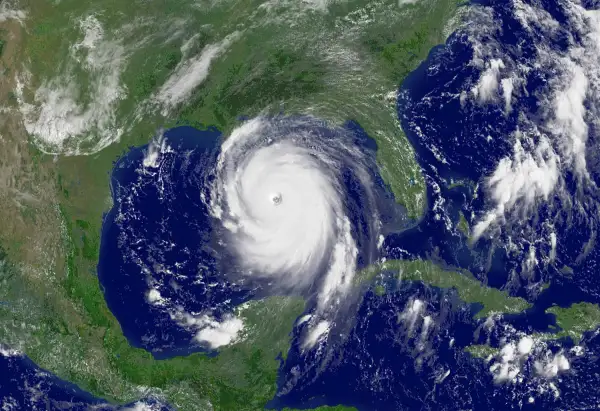These Are the Essential Items You Need In a Hurricane

Late August is peak hurricane season, when some of the most severe tropical storms hit the southern and eastern coasts of the United States. While there's no avoiding the weather, it's not that difficult—or expensive—to stock up on basic items in case you lose power or are temporarily unable to leave your home.
This year's hurricane season is expected to be the worst since 2012, when the East Coast was ravaged by Hurricane Sandy. While we've yet to see any serious storms, a tropical depression is currently brewing in the Gulf Coast and could make landfall in Florida as early as Thursday or Friday, according to the local NBC News affiliate. Officials are already fearing the public health dangers of standing water that such a storm would cause, would compound the state's health problems amid its struggles with the Zika virus.
While it might run you a couple hundred of dollars to gather emergency supplies, your investment could save you even more money—or your life—if a severe weather event strikes. If you live in the potential path of a storm, here are the necessities you need to have on hand to cope with blackouts, flooding, and other weather-related problems.
Blankets
Temperature can drop quickly if you lose power. Make sure you have a warm blanket or sleeping bag, as well as additional bedding if you live in a colder climate. A plush blanket can run you about $10 to $15; you can purchase a sleeping bags for as little as $20 to $30.
Canned Food
Keep a three-day supply of canned goods and other non-perishable items in the event you aren't able to rely on your refrigerator: canned meat and vegetables, cereal, powdered milk, and peanut butter. Canned goods are typically inexpensive, and even more so when you're able to buy them in bulk.
Can Opener
Canned goods aren't much good if you can't open the cans! A sturdy can opener should run you about $10.
Documents
Don't lose your essential documents to the ravages of a storm. Keep important paperwork like copies of insurance policies, bank account information, and other financial records in a waterproof container that you can grab if necessary. You'll thank yourself later; replacing this key information could be time-consuming and potentially costly. A portable one like the type pictured above goes for about $50.
First Aid Kit
The American Red Cross and many drugstores sell premade first aid kits. (The Red Cross's kit costs $29.) If you're putting together your own, some items you should include: adhesive bandages, gauze rolls and pads, cotton balls, safety pins, tweezers, scissors, antibiotic ointment, and pain medication like aspirin.
Flashlight
A long-lasting LED flashlight can be had for as little as $1o to $15, while a traditional torch like the one pictured here costs even less. And don't forget about extra batteries to recharge your light source.
Gas
In the wake of Hurricane Sandy, when half of New Jersey households lacked power, 80% of local filling stations were unable to sell gas, Reuters reported. That forced customers to wait in long lines for fuel, which was rationed in many locations. If a serious storm is headed your way, don't forget to fill your car's tank to tide you over in the event of a serious disaster, or allow you to hit the road if you need to get out of town.
Map
If you lose access to your phone's GPS system, area maps could prove essential, especially in the event of an evacuation. Check out the U.S. Geographical Survey's website for a wide selection of state and county maps, many of which cost less than $10.
Matches
If you've lost electricity, matches will come in handy to light a candle or a stove. Keep them in a waterproof bag or container so they don't become too water-logged to light.
Medicine
Don't let a hurricane cause you to neglect your health. Make sure you have sufficient supply of any prescription medication you take, as well as contact lenses or glasses if you need them.
Phone Charger
Keep your cell phone charged as long as you can. If you lose power, make sure you have a portable charger (around $30) to reboot your phone until you can get to the nearest charging center.
Radio
In order to keep up with the news, particularly any safety alerts, make sure you have a battery-powered or hand crank radio. A NOAA weather radio, which broadcasts continuous local meteorological information directly from the National Weather Service, could also prove helpful. Don't forget extra batteries for both devices. A NOAA radio should run you about $20.
Toilet Paper
It might be difficult to get to a store -- even if they're open for business -- to get even basic paper products. Make sure you have sufficient supply of sanitary supplies like toilet paper, paper towels and moist towelettes.